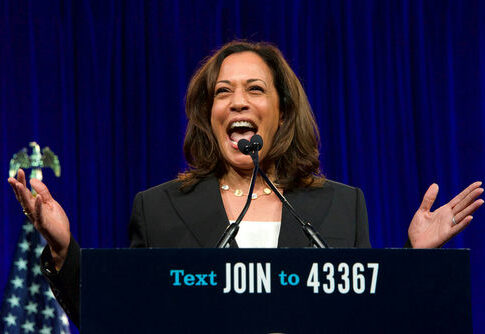A new wave of conspiracy theories questions the legitimacy of Trump’s victory, echoing past election denialism and threatening to further divide the nation.
Emergence of Left-Wing Election Denialism
Following the 2024 presidential election, left-wing conspiracy theories emerged, claiming Kamala Harris was the rightful winner. These narratives allege millions of “missing votes” and foreign interference, despite major media outlets declaring Donald Trump the victor and Harris conceding promptly. This reversal of typical election denialism patterns, traditionally linked to right-wing groups, highlights a growing bipartisan issue of distrust in electoral processes.
Election officials and media outlets have moved quickly to debunk these claims. Despite the theories gaining traction on platforms like Twitter and Reddit, officials have emphasized transparency and continued vote counting, while media outlets have highlighted the lack of evidence supporting these conspiracy theories. The rapid response has been crucial in preventing these narratives from gaining mainstream traction.
Role of Social Media in Spreading Misinformation
Social media platforms have once again played a central role in amplifying conspiracy theories. The spread of misinformation, fueled by distrust in institutions and the viral nature of such content, showcases the challenges faced in maintaining democratic integrity. These platforms have been pressured to moderate misinformation, with election officials and media working tirelessly to counter false narratives.
The persistence of these conspiracy theories, despite being debunked, underscores the deepening polarization in American politics. The normalization of election denialism across the political spectrum poses a threat to democratic legitimacy and highlights the need for ongoing public education and robust fact-checking efforts.
Implications for Future Elections
The emergence of left-wing election denialism in 2024 has far-reaching implications. In the short term, it erodes trust among Democratic voters and increases the workload for election officials tasked with ensuring transparency. In the long term, the bipartisan spread of such narratives could further polarize the electorate, making future transitions of power more contentious and challenging.
Kamala never won a Primary. She was installed. Same with Biden who bombed in the 2020 primaries and same with Hillary Clinton who was installed by D superdelegates over Bernie Sanders who was preferred by D voters in 2016.
Now the D Party says it’s Rs who are threatening… pic.twitter.com/sptkQnxuTa
— DuPage GOP (@DuPageCountyGOP) September 27, 2025
Efforts to combat misinformation and rebuild trust in electoral institutions are more critical than ever. As the nation moves forward under President Trump’s administration, maintaining the integrity of the electoral process and addressing the root causes of distrust will be pivotal in safeguarding democracy.
Sources:
Election Workers Debunking Disinformation and Conspiracy Theories
Election Night Disinformation Risks
Worried About Misinformation This Election Year? Here’s What Funders Can Do



where the hell do these democraps get there drugs…i want some…kamala got her ass kicked !!!